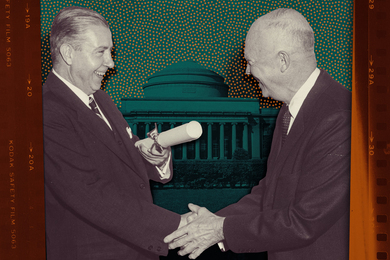New scheduling software being adopted by United Airlines could save the company as much as $25 million annually, said researchers from MIT and the University of Florida.
Planning an airline's flight schedule requires consideration of many criteria. These include matching a plane's capacity with demands for flight legs, and weighing the costs of non-stops and through connections (flights on the same planes continuing to additional destinations) against the prices passengers are willing to pay for them.
The new software will improve the efficiency of such scheduling.
It is based on a novel integrated methodology developed by Professor James Orlin, co-director of the Operations Research Center (ORC) at the Sloan School, graduate student Dushyant Sharma of the ORC, and Professor Ravindra Ahuja of the University of Florida. The new methodology, which identifies the most profitable assignment of planes, led to greater efficiencies than an earlier version. The latter solved the problem in a non-integrated manner as a two-stage decision process.
Previously, an airline's ability to assign planes to flight legs and determine through connections between flights in an integrated manner was impractical because the solution technique required too much computer time. The new software, based on a novel search-based methodology, allows an airline to obtain near-optimal decisions within seconds.
The researchers are extending the methodology to include additional criteria, such as crew costs, reliability and flexible flight-departure times. The work was funded by the National Science Foundation and United Airlines.
A version of this article appeared in MIT Tech Talk on April 3, 2002.





